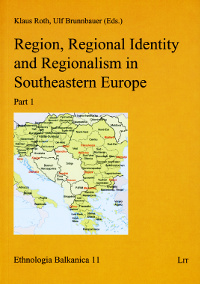Narratives About Dissenter Neighbours and Their Place in the Cultural Strategy of Coexistence in the Western Rhodope Region of Bulgaria
Narratives About Dissenter Neighbours and Their Place in the Cultural Strategy of Coexistence in the Western Rhodope Region of Bulgaria
Author(s): Magdalena LubańskaSubject(s): Anthropology
Published by: LIT Verlag
Keywords: Bulgaria; Muslims; Christians; narratives about neighbourliness;
Summary/Abstract: The Western Rhodopes are mainly inhabited by a Slavic population of Orthodox Christian or Sunni Islam confessions. The paper describes the relationship between different types of narratives about dissenter neighbours which I heard in Muslim-Christian communities in 2005 and 2006. They are crucial for understanding the grassroots strategy of coexistence between Bulgarian speaking Muslims and Christians. Two narratives are prevalent among Muslims and Christians, the first one being fundamental for supporting the region’s neighbourliness, as it depicts the others as “brothers”, “the same”. The second one derives from mutual resentments and hidden fears, evoking collective memories of massacres. Other narratives unveil prejudices and negative attitudes to the other religion, but they are told only within each group. In Muslim narratives, Christianity is considered a fallacy based on misinterpretations and on heresies spread by the Apostle Paul. Christian narratives do not perceive Muslims as distinct from Christians, ascribing to them a Crypto-Christian identity, but on the other hand orientalising local Islam as backward and patriarchal. The first narrative, told by both religious groups, makes the existence of the separate narratives possible without upsetting the neighbourliness in the region.
Journal: Ethnologia Balkanica
- Issue Year: 2007
- Issue No: 11
- Page Range: 185-203
- Page Count: 19
- Language: English
- Content File-PDF

